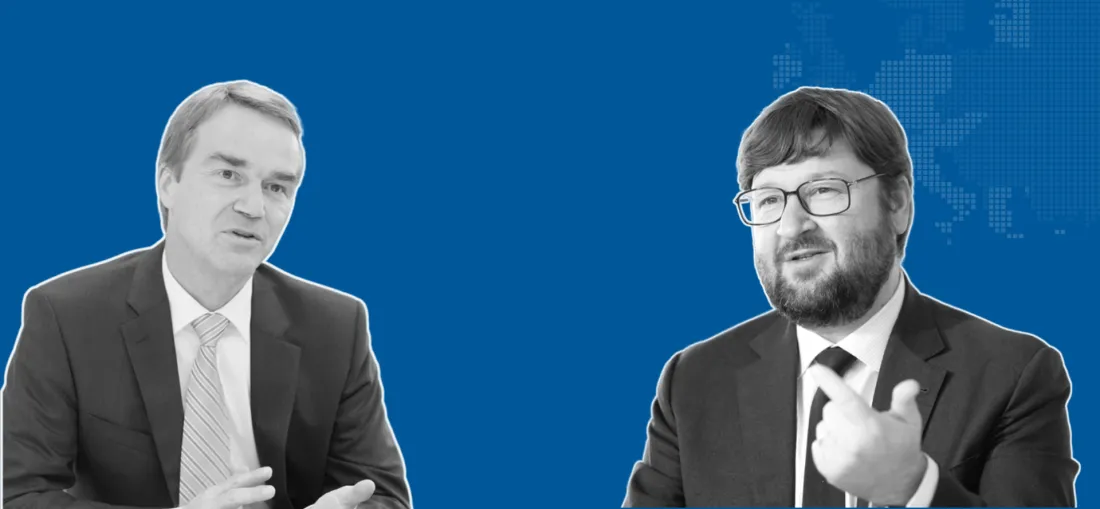Time to act: new fiscal rules, debt and growth sustainability

“Time to act: new fiscal rules, debt and growth sustainability”
By Nicola Giammarioli and Rolf Strauch, members of the Management Board of the European Stability Mechanism
Europe.Table newsletter, 11 January 2023
Fiscal rules are necessary in the European Monetary Union, but unpopular. The rules are often described as a “budgetary straitjacket”. Supposedly, they would make it difficult for countries to fulfil political spending promises or provide desired public investments.
However, in a monetary union like the euro area, where members have only fiscal policy as their own macroeconomic instrument, we must agree on fiscal rules to ensure sound government finances. Fiscal rules maintain trust between the member states and strengthen the confidence of citizens and financial markets in the euro.
The Stability and Growth Pact (SGP) sets out the fiscal rules. Since the Pact was negotiated in 1997, it has been adjusted several times. Often this happened because the Pact appeared incomplete in view of the economic challenges.
Even before the pandemic, the need to reform the SGP towards a new, simpler, and more effective framework for managing the various economic and financial risks became clear.
Following a public consultation, the EU Commission evaluated all proposals and presented a revised fiscal framework last year.
Through the new fiscal framework, the Commission aims to strengthen countries' debt sustainability while promoting sustainable and inclusive growth through investment and reform.1
In its proposal, the Commission pays special attention to countries where debt sustainability is a major problem. In such cases, gradual debt reduction is prescribed after an adjustment phase. The Commission would keep the rule that budget deficits must not exceed 3% of GDP, while member states would be given more leeway to design their own fiscal strategy.
Under this proposal, countries would have to submit national plans that ensure compliance with the fiscal criteria, while at the same time presenting reform and investment projects. It would be the Commission’s task to assess the plans.
By giving countries more time to make fiscal adjustments as they invest and move towards a more sustainable economy, the proposal seeks to strike the right balance between stability and growth, the two objectives of the Pact.
The Commission’s proposal is largely in line with the objective of the ESM’s contribution to the discussion. The EU Commission’s proposal now forms the basis for the political discussion. The EU fiscal framework is of great importance for the mandate and activities of the ESM. The ESM is ready to actively participate in this discussion.
First, the assessment of debt sustainability is at the heart of the ESM‘s work. Debt sustainability analysis is an important building block of the fiscal rules. Irresponsible budgetary policies in individual member countries, if they jeopardise debt sustainability, can endanger the financial stability of the monetary union. Safeguarding this stability in the euro area is the core mandate of the ESM.
Second, access to ESM financial assistance, in particular to its precautionary credit lines, is closely tied to criteria linked to the EU fiscal rules.
Third, the fact that the ESM keeps track of countries' ability to repay their ESM loans (the so-called early warning system) is closely linked to post-programme surveillance, which is also addressed in the Commission's communication.
These three points show that the ESM’s work is interwoven with the EU Commission's proposal.
EU Member States now need to discuss the Commission’s proposal and agree on the changes and improvements to the fiscal framework. Governments should not miss the opportunity to come to a successful conclusion before the general escape clause – which allows for the rules to be suspended in exceptional circumstances – expires at the end of this year. This will be an important contribution to fostering a stronger and more sustainable future for Europe.
1 European Commission (2022), "Building an economic governance framework fit for the challenges ahead", press release: Building an economic governance framework (europa.eu); inclusive growth is defined as: "fostering a high employment economy with strong social and territorial cohesion".
Authors


Contacts


